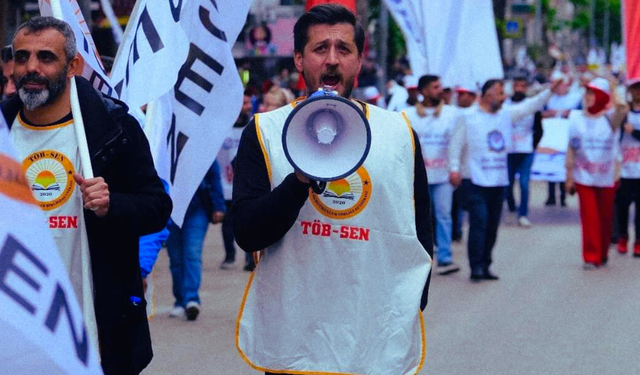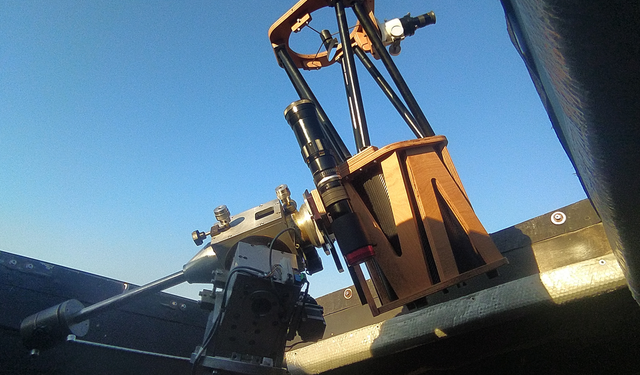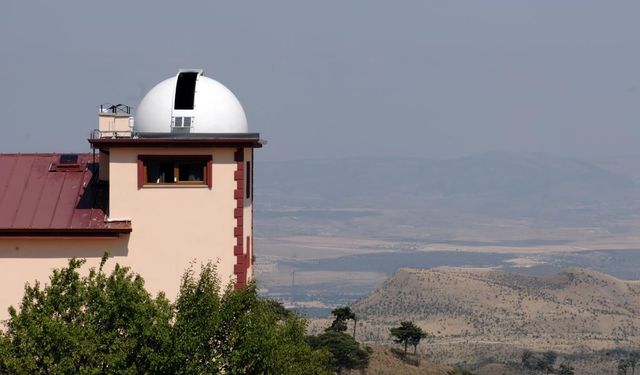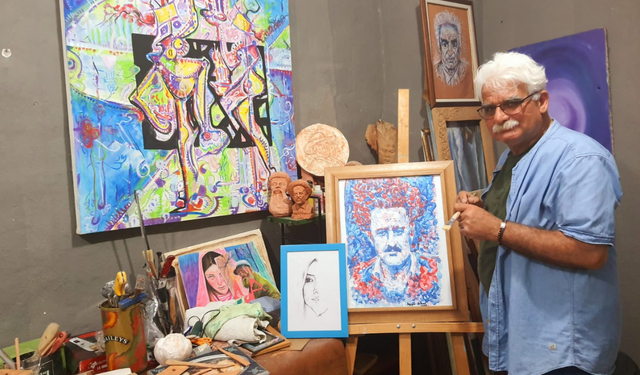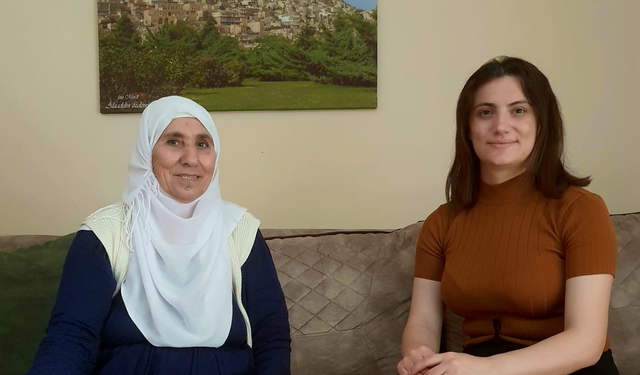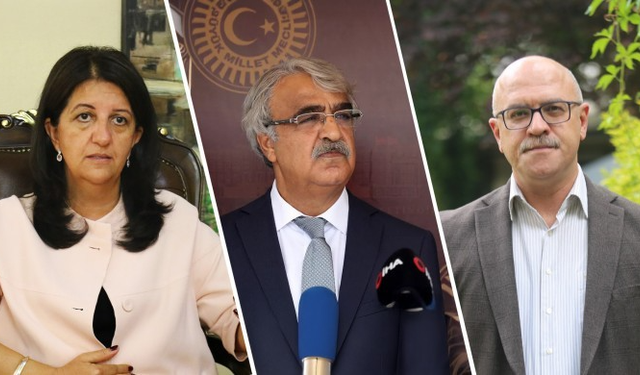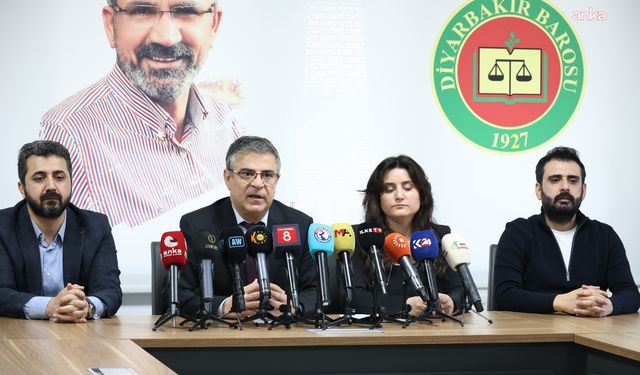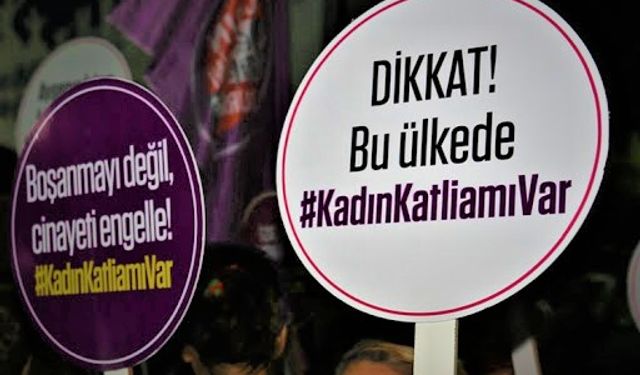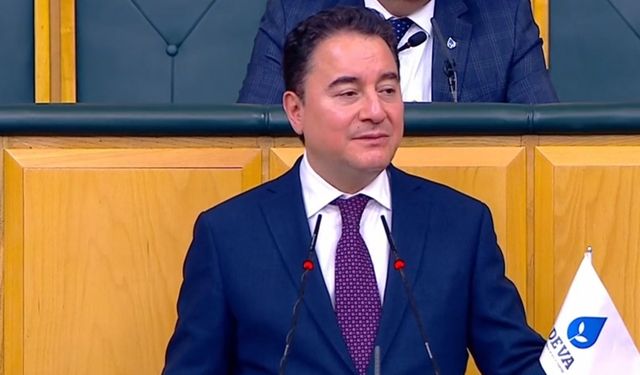Animal rights activists Fatma Biltekin, Melike Özdemir Ballı, and Hülya Yalçın commented on the new amendments made in the Animal Protection Law
We talked with Fatma Biltekin from the Animal Rights Monitoring Center (HAKİM), Lawyer Melike Özdemir Ballı and Lawyer Hülya Yalçın from the Animal Justice Association (HAD), about the new amendments made in the Animal Protection Law, the fights against the law, and how this fight can be maintained.
Animal rights activists underlined that the proposals that guarantee the rights and freedoms of animals have been ignored and that deterrent sanctions have not taken place since the law was enacted in 2004, and now that the latest amendments are also insufficient. Despite the consensus reached in the Animal Rights Research Commission, which was established as a result of the joint work of the 5 parties in the parliament, it was emphasized that we are faced with a regulation that ignores the commission's report.
1- Animal rights law has been finally passed, but the result has not been satisfactory. However, animal rights activists have been fighting for this law for years. Would you like to briefly talk about the history of the fight against it?
Fatma: The first law on animal rights in Turkey was the Animal Protection Law No. 5199, enacted in 2004. Although this law was insufficient, it included provisions for the benefit of animals, but was not implemented for 17 years. A proposal to amend the law was prepared in 2011; this proposal included items that would cause the animals living on the streets to be confiscated and sent to the unknown. It was withdrawn due to the reactions, until 2014... The proposal was discussed and accepted in the Environment Commission in 2014, but it never came to the general assembly due to the reactions. The proposal prepared by the Ministry of Justice in 2018 was unbelievable. There were unacceptable articles such as '2000 TL fine for raping an animal', and this proposal was withdrawn again after the reactions. In 2019, the Parliament’s Animal Rights Research Commission was established; the commission published an advisory report containing articles in favor of animals. When it was 2021, AKP ignored this report and enacted this law, which was not much different from the previous proposals.
Melike: There has been a fight for years to remove animals from the status of property, to hand over their rights to them, to bring about a change in consciousness in the society and to end this unjust order. Even though the law has been enacted, this fight continues with everyone who rejects slavery and the system of exploitation, and who stands for life, rights, and freedom. If we look at the history, there is an Animal Protection Law in Turkey that came into force in 2004. Although this law brings some positive regulations, it is insufficient, not implemented, does not contain deterrent sanctions, ignores many animal species, regulates how animals should be killed and how they can be tortured in experiments. While we have been telling for years that this law should be changed and that the rights and freedom of animals should be legally guaranteed, we have always been faced with draft laws that do not include deterrent sanctions and that will lead to the death and isolation of animals. Relentlessly, for years, we opposed to every regulation that would be brought against animals, we took actions, we went to the parliament; met with deputies, bureaucrats, ministers, and all authorized persons and expressed our demands, presented pages of documents, had videos watched, and fought for the violation of rights to be noticed and for this system to come to an end. In 2019, we had some hope thanks to the report, which came out with the joint work and signature of the 5 parties in the Parliament after the establishment of the Animal Rights Research Commission of the Grand National Assembly of Turkey. However, now we are faced with a law that does not contain deterrent sanctions and that ignores our efforts, and more importantly many animals. We continue to fight against a regulation that was released in the middle of a night inadequately, while everything was ready to show an exemplary law for the world the parties agreed upon; because animals cannot wait for another 17 years and not even another day.
Hülya: We have an Animal Protection Law, which has come into force in 2004 and which is extremely inadequate except for a couple of articles that we think are well-intentioned. Over the years following its release, we realized how unusable and human-centered the law has been, and then we started to stand for our demands for the new regulations. Until 2021, there were multiple regulatory texts that remained obsolete many times. We had discussions that lasted months each time. We discussed all the details with deputies from all parties, bureaucrats, and officials from all levels. Unfortunately, the staff changed constantly and we progressed by starting from scratch each time. Finally, in 2019, we were more hopeful than ever when the Parliament’s Animal Rights Research Commission report emerged, in which the common will of all political views in the parliament was reflected. Because we naturally thought that if everyone agreed, there would be no one to object to this report. Unfortunately, a completely different regulation, which we started to receive the first signals of before the ministerial meeting, entered into force with the Official Gazette dated July 14. Despite all this work, all reasonable and feasible demands and efforts, instead of a good “protection” law, unfortunately, we are left alone with the law numbered 5199, which is far behind the expectations, hardly mentioning punishment, trying to defend itself with the sentence that (some of) animals have been removed from the status of property.
"ANIMAL ABUSE CONTINUES"
Underlining that the prison sentence brought by the new regulations is only for show off, lawyers Özdemir Ballı and Yalçın pointed out that these sentences are deferred and can be converted into money. Citizens' right to complain is not recognized; perpetuating the “property” status of animals. It was emphasized that the regulations that condone their sale, closure, killing, and use in experiments are far from protecting the rights of all animals, including humans.
2- The amendment made to the Animal Protection Law and the Turkish Penal Code was published in the Official Gazette on 14 July. What changes are there in the new law?
Melike: Although the new regulation claims that animals will no longer be seen as goods but as living beings; they will continue to be bought and sold as goods, to be taken captive, to be tortured in experiments, to be used in phaetons, to be carried through cargo, to be killed for reasons such as hunting-food-fur for human’s interests. In short, nothing has changed for many animals and our demands have been ignored. The introduction of prison sentences with the new regulation is undoubtedly a very positive change, but these penalties do not act as a deterrent; they can be postponed and converted into cash. Moreover, in order for the perpetrator to be punished, it is required that the provincial or district directorates of the Ministry of Agriculture and Forestry make a written application to the Office of the Chief Public Prosecutor - except the cases of in-the-act. This regulation, which will take away our constitutional rights and cause many acts to remain unpunished in practice, was introduced in order not to create a workload for the courthouses; and we absolutely do not accept this regulation.
The authority to identify dangerous animals was given to the Ministry, and even the feeding of these animals was added to the prohibited acts. We do not yet know what other violations of rights we will encounter in the Implementation Regulation.
It is forbidden to keep cats and dogs in pet-shops, but the sale of animals such as birds and fish will continue. Cats and dogs will continue to be sold at production sites by being selected over the catalog just like an item. If animals had been removed from the status of property, they should have banned the production and sale of animals, and abolished all regulations that made them property, but on the contrary, with last-minute motions, it was even possible for animals to be enslaved by everyone. Real or legal persons will be able to establish captivity and exploitation centers under the name of natural life park. I will never understand the logic of detaching an animal from its natural life and confining it to areas called natural.
Hülya: The presentation sentence of this law was “We introduced a prison sentence, we removed the word “ornament”, we passed a law which makes animals living things, not property”. These sentences, which most animal lovers welcome with great joy, are actually far from reality and are just showcase sentences. After less than a month, everyone started to understand. If the animals are to be accepted as “living beings” and protected, why are they being sold from the catalogue? Why are some animals killed in slaughterhouses? Why are some animals used for human prey killings? Why will so many animals continue to die on the experimental tables? Here are just a few of the questions that come to mind. According to our country's legal system, prison sentence turned out to be a difficult process and a very extreme practice. What is important is not the "name" of the act or the animal, but the criminal definitions; how to apply it will depend on the compelling conditions. We see that these are not clear in the text of the law. Our biggest demand was to make a regulation in which a citizen on the street could easily initiate the legal process. A completely opposite definition of complaint and process emerged with this law. What we are left with are the regulations made in the definitions of "pet, ornamental animal, owned animal, non-owned animal". They also do not have a function in basic protection applications. We are now working on how we can operate an animal protection process by considering the general legal rules within the text of the law, which is full of these impossible things. It will benefit animals if we all learn and internalize these processes quickly.
"THE LAW IS FOR SHOW ONLY"
Activists, who agreed that the latest amendments to the Animal Rights Protection Law serve profit groups rather than animals, stated that the actions taken were ignored for the sake of "not upsetting" those who benefit from animals. It was argued that the changes were made according to the opinions of bureaucrats, not according to the reports prepared.
3- After the law was discussed in the general assembly, calls were made for the president to veto it, actions were taken, but despite all efforts, the law did not change in favor of animals. Despite all these pressures, why was the law changed in this way?
Fatma: There was a fight for years and there was a public pressure, but the legislators didn't really care about this. The law clearly protects those who get income from animals and does not deal with the rights of animals in any way; as in almost all the laws released in recent years, it contains articles that are totally for show and aimed at deceiving the society. The report that the 5 parties agreed on is thrown away and the wishes of the appointed ministers and unearned income holders are fulfilled, which is a clear indication that the parliament does not have a will. This situation is actually just one of the results of oppression, lawlessness and anti-democratic practices that have permeated the country for a long time.
Melike: We actually got results from the actions in the previous years and made our voice heard, but I guess it doesn't mean anything for them to hear our voices anymore. We talked so much, we told so much, we delivered so many written documents and videos... Our voices and demands were very clear and mutual. It was very clear what had to be done. Although it has shortcomings, if the Research Commission Report, which is a recommendation on 5 parties have agreed and signed, had been taken and converted directly into the text of the law, the fight for animal rights would have achieved a very serious success, and the justice we owe to animals would have been achieved to some extent. However, instead of ignoring the effort and fight, it was preferred to enact a law reflecting the views of the ministry bureaucrats, in a way that would not "upset" and encourage groups that derive benefit from animals.
Hülya: Our actions and all the protests were obviously followed by Ankara as if they were watching a movie. We're pretty sure they don't even care now. Anything without votes and economic potential has no value in this politics. Justice, the right to live, civilization, etc., remained in our hands like an empty talk. In fact, we had too many expectations from this system. We thought, "our protection instincts are more or less the same, now they are more aware of the street" because a few of them have dogs and cats in their house. We were wrong. Our next fight will be tougher. I don't mean in terms of actual violence, but we will have to go beyond the politicians. Because the hand of the animal exploiter is very "dirty". It is literally filthy. There is blood, there is theft, there is fraud, there is unearned income. But animals need us too. In short, we will continue with what we have.
"IMPLEMENTATION REGULATION WILL DETERMINE HOW HORRIFIC THE RESULTS CAN BE"
It was said that the introduced regulations carry threats such as continuing the violations through mobile spaying, sending the recalled animals into the unknown, making the violations invisible through complaining condition, and not preventing impunity. According to Biltekin, Özdemir Ballı and Yalçın, the Implementation Regulation will determine the problems that the law may create.
4- What kind of problems can the law cause in its current state?
Fatma: In fact, the Implementation Regulation will determine how direct the consequences can be. With the regulation to be issued, they will be able to interfere with the number of animals in the houses; or in places with a population of less than 25 thousand, municipalities will collect animals and take them to the nearest nursing home, thus legally collecting all animals and sending them to the unknown. The complaint requirement seems to be one of the biggest problems because in practice, violations of street animals will go unpunished.
Melike: First of all, I can say that I find the term natural parks very dangerous. Because an arrangement has been made to cover all animals and it is not clear for what purpose they will be launched. In addition, there is the possibility of limiting the number of animals living in the houses with the regulation. A wide discretion was left to the Ministry, as in many other areas, by saying, "Measures to prevent harm and discomfort caused by the animals that are kept to the environment are determined by the Ministry with a regulation". Violations through mobile spaying under the name of "temporary units" will continue, and in places with a population of less than 25,000, animals will be taken to the nearest nursing home for treatment and spaying. Unfortunately, this substance will pave the way for deaths in transport and dumping into forests. However, we stated that the animal population, not the human population, should be taken into account, and we demanded the establishment of treatment and sterilization centers in every district, and animal hospitals that are open 24/7, with veterinarians and technicians on duty and equipped with the necessary equipment.
Of course, one of the very serious problems in practice will be the impunity for every violation that the Ministry of Agriculture and Forestry Directorates do not report to the Office of the Chief Public Prosecutor. In addition, even if the perpetrators are sentenced after the trial, they will leave the courthouse and mingle with the society by waving their arms in many cases, saying, "What are so many lawyers doing here, it's like we killed people", and sometimes even looking at us without shame and laughing. We will continue living with those who will not be faced with deterrent sanctions and who abuse, kill, torture and rape women, children, animals and people.
Hülya: We haven't seen the Implementation Regulation yet, the real horror will show itself there. Because the law only determined the main topics. Details and all regulations regarding the authorized institutions will come with the regulation. It is not difficult to understand it from the text of the law. Our biggest problem is that this text, which is presented to the society as a "good law" and which even some lawyers, unfortunately, is applauding with an incomprehensible naivety(!), will challenge us everywhere. For example, lawyers will be confused as; “There is such a good law, why can't we get results?”. In order to prevent this, we said emphatically in the last protest action before the law was enacted that this law is unacceptable and hands are tied. The complaint process, the evidence, the interventions of associations and individuals remain at the level of zero impact if we look at the text of the law. Moreover, the trial process (court, litigation) seems even more distant.
The title definitions of the law sound very cute to the ear of someone who does not know the reality. Look at the first article, it is full of beautiful phrases such as "comfort of animals, protection of health, improvement of living conditions"; sentences that reflect animals as if they are the most important value of the country. The ignorant says, "What a beautiful law this is". We also see how it is useless when it comes to implementation, that is, when it is set out to protect it, that it cannot mobilize any institution, and how institutions that are held responsible are protected without punishment. The difficulty is two-sided. It is important to continue the fight against the institutions and also correctly explain this fight to the society.
"FIGHT UNTIL THE LAST ANIMAL"
Animal rights activists pointing out the importance of educational work, use of social media and actions pointed out that it is essential to raise awareness of rights, to establish a dialogue with groups that are hostile to animals, and to "find common points in favor of life".
5- What will you do next? What should we do?
Melike: We will continue to fight in every field without giving up. We are trying to push whatever can be done about the law and strive for the better. In this process, I think the most important issue is to continue to raise awareness of the society. This is how laws and the unjust order will change. We will continue our training activities without slowing down. People need to be conscious and aware of what they are doing to animals and nature. Educational studies, publications, social media, actions and a strong civil society movement are essential. With the right people, there is nothing you cannot achieve when you act in the right way. Every individual effort is very valuable, but if we fight together, we can achieve success faster. You can also support the work done, produce projects and ideas, participate in training activities, and then raise awareness of your own environment. It is very important to know what to do when faced with a violation, to be aware of both their own rights and the rights of animals. One thing I always say: human slavery was also legal once, but those who fought won. We will certainly win. The only difference is that we are fighting for them, not for ourselves.
Hülya: We, as HAD (Animal Justice Association), will continue our training activities. Over the years, we have clearly seen that it is absolutely necessary to explain the “consciousness of rights” to children and young people in the education process, that the right to life of other living things is as valuable as ours. We get good feedback on this, but it takes time, it doesn't happen right away. We attach great importance to the animal rights education process we do with our legal identity. Because those who seek rights are on the field "for the rights of animals too" is a good example.
Another plan of ours is to get in touch with the institutions mentioned in the new text of the law and learn firsthand about the methods and the process on issues that have not yet been the first example. We will also meet with the police stations and prosecutor's offices, especially with the Provincial Directorates of Agriculture.
Another topic is dogs. Almost since 2004 and even before, all activities revolve around dogs. Those poor animals couldn't be put on the ground. In the new law text, their indirect destruction is planned in the long term. In fact, wild collection processes will be started by making the chip requirement a good step in a cunning way (this may be optionally useful, we should also mention); there is no obstacle in front of it.
One of our important issues will be to go to places that do not want dogs, especially to places where dogs are hostile, to meet with those groups. Because they do not want dogs there, and we are the opposites here; the dogs in the middle are devastated. Not to mention the state deaths. Over the years, we have seen that the reactions of these people to animal lovers tend to be towards animals. But in order to protect animals, we have to find commonalities in favor of life.
We are constantly working on the text of the new law. We identify the relations with other laws, legal techniques and the gaps we can open in practice. If there is a way, we have to find it. We have to somehow connect the non-existent paths to the main application. As we always say, the fight will continue until the last animal, of course.
Translator: İpek Laçin
(This article has been produced with support from the European Union, as part of the EU's Sivil Düşün Program. The content's responsibility solely belongs to Law for Life Initiative and does not reflect the views of the EU.)

